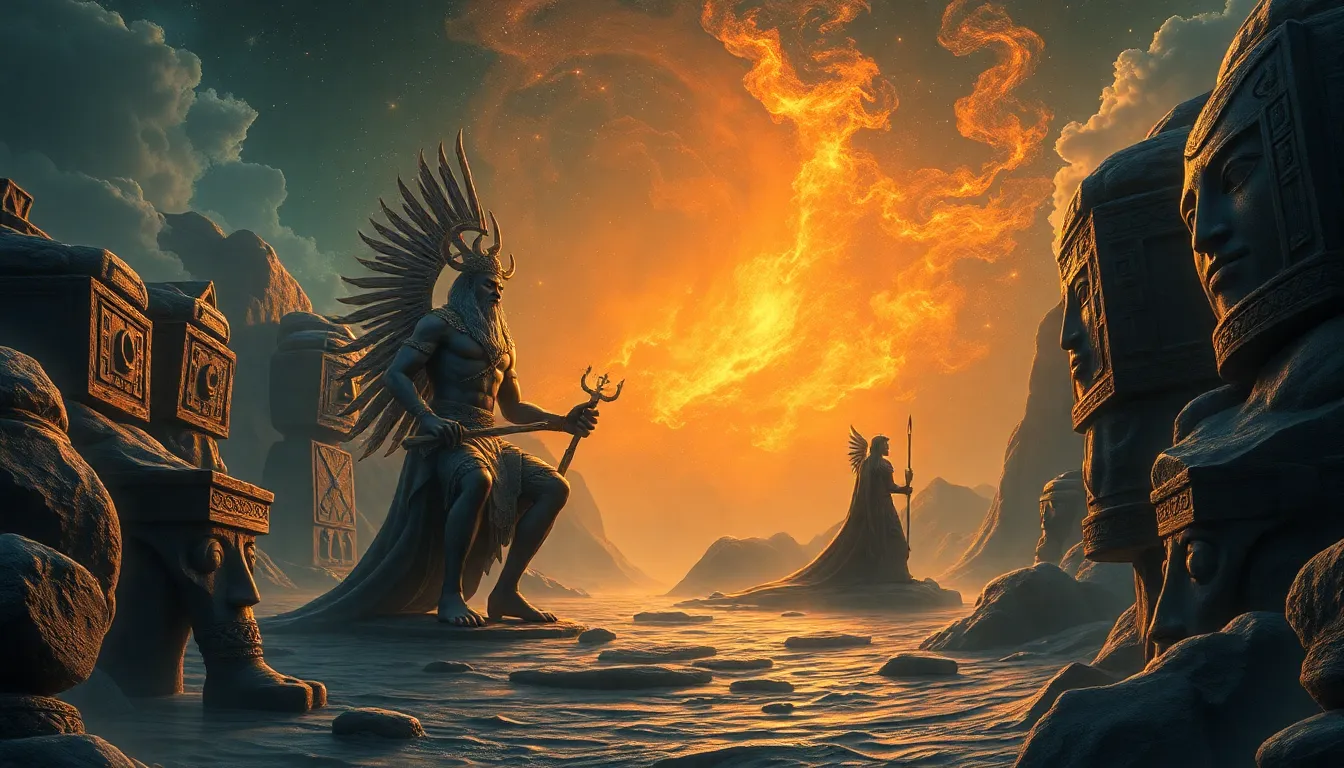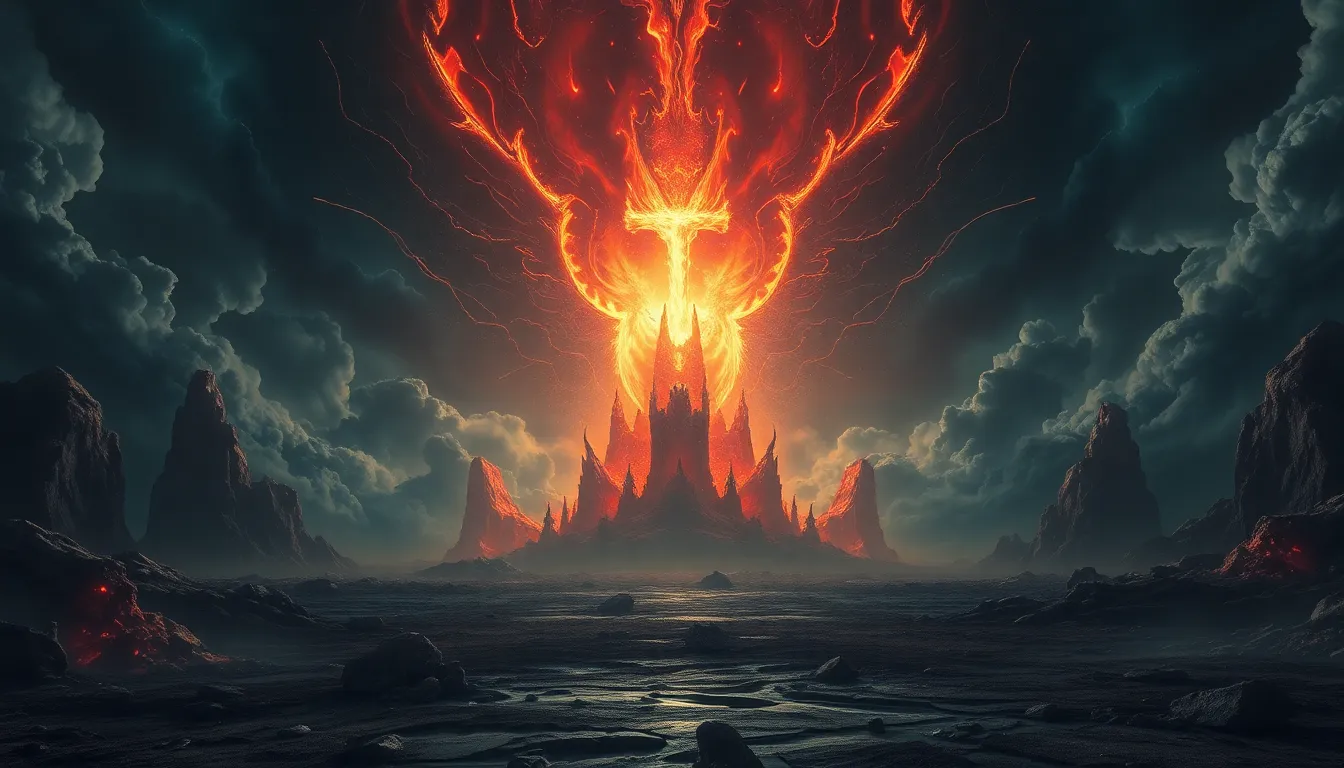The Most Notable Myths of Ancient Deities and Their Impact
Introduction to Ancient Deities and Their Myths
Ancient deities are divine beings worshipped by various cultures throughout history. They often personified natural elements, human emotions, and societal ideals. These deities served as central figures in myths, which are traditional stories that explain the origins of the world, human existence, and the cosmos. Myths played a critical role in ancient cultures, providing a framework for understanding the world and humanity’s place within it.
This article explores the most notable myths surrounding ancient deities and examines their profound impact on cultures, literature, and contemporary society.
The Role of Myths in Ancient Societies
Myths served several essential functions in ancient societies:
- Explaining Natural Phenomena: Myths often provided explanations for natural events such as storms, earthquakes, and the changing seasons. For example, thunder was attributed to the wrath of Zeus in Greek mythology.
- Moral and Ethical Lessons: Many myths conveyed important moral lessons and ethical standards. For instance, the story of Prometheus highlights themes of sacrifice and the consequences of defiance.
- Rituals and Religious Practices: Myths were integral to religious rituals, guiding worship and ceremonies. They helped to reinforce the cultural identity and social norms of the community.
Greek Mythology: The Pantheon of Gods and Their Tales
Greek mythology is rich with a pantheon of gods and goddesses, each with their own distinct personalities and stories. Major deities include:
- Zeus: The king of the gods, god of the sky and thunder.
- Hera: Zeus’s wife and goddess of marriage and family.
- Athena: Goddess of wisdom, courage, and warfare.
Notable myths such as The Iliad and The Odyssey showcase the interactions between gods and humans, depicting epic battles, heroism, and the quest for glory. The influence of Greek mythology extends far beyond ancient Greece, significantly impacting Western literature, art, and philosophy.
Egyptian Mythology: Creation Myths and Afterlife Beliefs
Egyptian mythology revolves around a diverse pantheon of gods, including:
- Ra: The sun god, central to creation myths.
- Osiris: God of the afterlife and resurrection.
- Isis: Goddess of motherhood and magic, wife of Osiris.
The significance of the afterlife in Egyptian culture is profound, with elaborate burial practices and beliefs in judgment after death. Myths such as the story of Osiris’s resurrection illustrate the importance of life after death and the cycle of nature. Egyptian mythology continues to influence modern spirituality and symbolism, particularly in concepts of life, death, and rebirth.
Norse Mythology: Tales of Valor and Cosmic Battles
Norse mythology features a rich tapestry of gods and heroes, with prominent figures such as:
- Odin: The all-father and god of wisdom and war.
- Thor: The god of thunder, known for his strength and protection.
- Loki: The trickster god, known for his cunning and deceit.
Noteworthy myths include Ragnarok, the prophesied end of the world characterized by a great battle. These tales of valor, sacrifice, and cosmic conflict have left a legacy seen in contemporary media, inspiring countless adaptations in literature, film, and art.
Hindu Mythology: The Epics of Creation and Dharma
Hindu mythology is deeply rooted in its primary texts, including:
- Mahabharata: An epic narrative of the Kurukshetra War and the fates of the Kaurava and Pandava princes.
- Ramayana: The story of Lord Rama’s journey to rescue his wife Sita from the demon king Ravana.
Key deities such as Brahma, Vishnu, and Shiva play pivotal roles in the cycles of creation and destruction. Hindu mythology profoundly impacts Indian society, influencing cultural practices, festivals, and philosophical thought.
Mesopotamian Myths: The Foundations of Civilization
Mesopotamian mythology, particularly from Sumerian and Babylonian cultures, includes gods like:
- Enlil: God of wind and agriculture, pivotal in creation myths.
- Marduk: Chief deity associated with creation and order.
Notable myths such as The Epic of Gilgamesh explore themes of friendship, mortality, and the quest for immortality. These stories laid the foundations for early literature and governance, influencing societal structures and beliefs in ancient civilizations.
Indigenous Mythologies: Nature and Spirit in Harmony
Indigenous mythologies encompass a vast array of beliefs and narratives, often centered around the relationship between humans and nature. Various cultures, such as Native American, Aboriginal Australian, and others, feature deities that embody natural elements and spirits.
- Nature as Sacred: Many indigenous mythologies emphasize the sanctity of the earth, rivers, and animals, promoting environmental stewardship.
- Colonization Impact: The colonization of indigenous lands has led to the disruption of these mythologies, yet many cultures strive to preserve their narratives and teachings.
Modern Interpretations and Adaptations of Ancient Myths
Ancient myths continue to resonate in contemporary culture, with numerous retellings in literature, film, and art. The resurgence of interest in mythology has led to:
- Retellings in Literature: Books like The Song of Achilles by Madeline Miller offer fresh perspectives on ancient tales.
- Film Adaptations: Movies such as Thor and Clash of the Titans draw heavily from mythological sources.
- Popular Culture: Mythological themes are prevalent in video games, music, and television, showcasing the timeless appeal of these stories.
The role of mythology in modern society remains vital, as it provides insight into human nature, cultural identity, and the universal quest for meaning.



